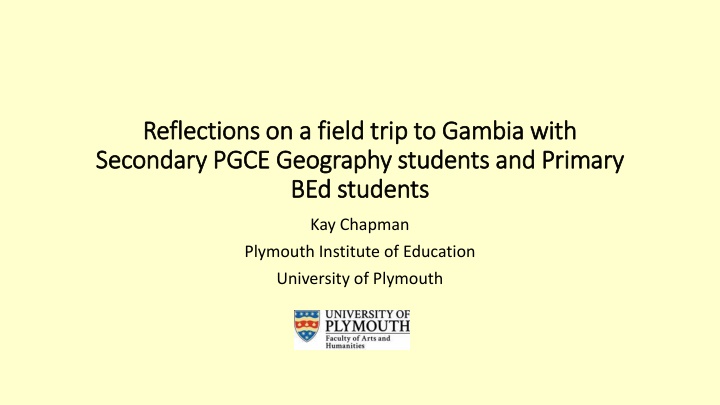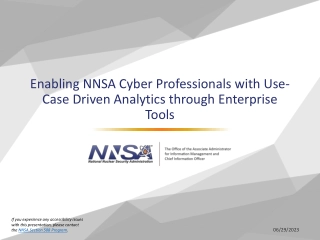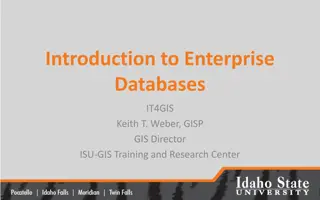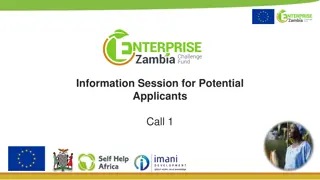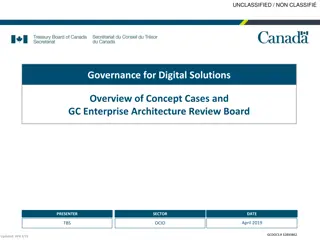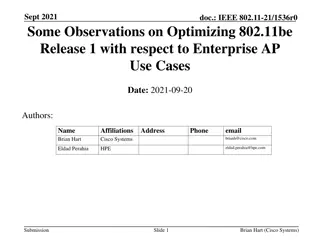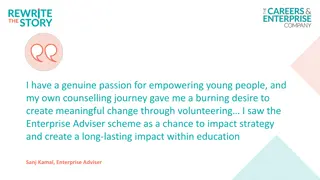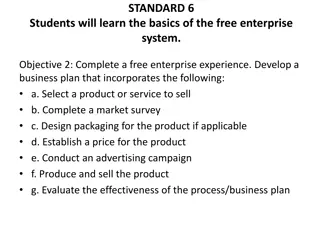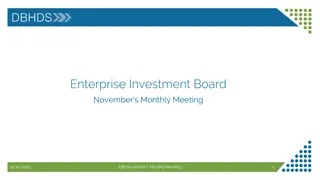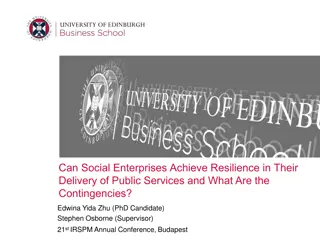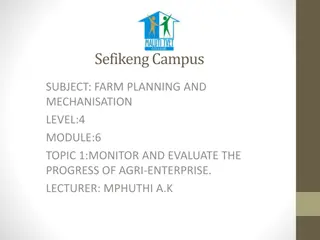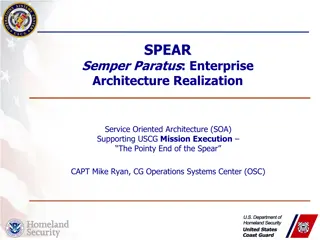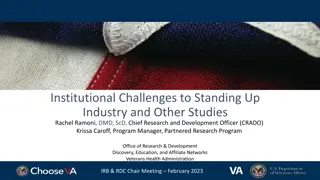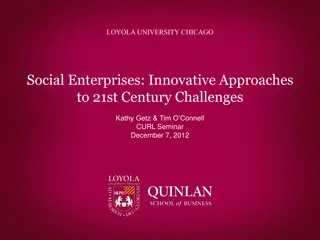Introduction to Enterprise Information System
An Information System is a work system that captures, transmits, stores, and manipulates information to support decision-making and organizational functions. It is crucial for organizations to align their information systems to provide necessary information to key groups within the organization. This includes different types of systems such as Management Information Systems, Decision Support Systems, Knowledge Work Systems, and Transaction Processing Systems.
Download Presentation

Please find below an Image/Link to download the presentation.
The content on the website is provided AS IS for your information and personal use only. It may not be sold, licensed, or shared on other websites without obtaining consent from the author.If you encounter any issues during the download, it is possible that the publisher has removed the file from their server.
You are allowed to download the files provided on this website for personal or commercial use, subject to the condition that they are used lawfully. All files are the property of their respective owners.
The content on the website is provided AS IS for your information and personal use only. It may not be sold, licensed, or shared on other websites without obtaining consent from the author.
E N D
Presentation Transcript
Reflections on a field trip to Gambia with Reflections on a field trip to Gambia with Secondary PGCE Geography students and Primary Secondary PGCE Geography students and Primary BEd BEd students students Kay Chapman Plymouth Institute of Education University of Plymouth
The field trip: 14 The field trip: 14th th- -21 21st stDecember 2018 December 2018 17 students, 3 staff 10 Secondary PGCE students 7 Primary BEd students 1 MA Education student
Why Gambia? Why Gambia? Long established trip and links between Gambia and University of Plymouth. Established links and the first trip in 1993. Relatively short, 6hr flight; no/one hour time difference; English speaking (including medium of education); cheap, efficient local bush taxis; locations accessible.
Gambia 2018 Gambia 2018 My aims for Secondary Geography PGCE: Comparing, and perhaps challenging, the way 'Africa' is portrayed in the KS3 Geography NC with our experience of Gambia. KS3 Place Knowledge understand geographical similarities, differences and links between places through the study of human and physical geography of a region within Africa
My theoretical lens through which to reflect: Postcolonial perspective researcher is not neutral; unequal power relations; through interaction there is opportunity for new meaning and knowledge creation. Postcolonial theory is relevant to those who both benefit from and are critical of ethnocentric global hegemonies and who aspire to use their privilege/lines of social mobility in the work against the grain of ethnocentrism and hegemony (Andreotti, 2012, p.8)
Ideas from Secondary PGCE students comments before the visit: Ideas from Secondary PGCE students comments before the visit: local economy, tourism, fishing, agriculture, manufacturing and more. a case study to compare and contrast a HIC and LIC to engage with pupils. a valuable opportunity to experience real geography to take back into the classroom! misconceptions of a Sub-Saharan African country. As a personal interest I would like to see the woman's co-operative, the mangroves, and the markets.
Reflections by Secondary PGCE Geography Students after the Reflections by Secondary PGCE Geography Students after the visit: compare experience with Primary visit: compare experience with Primary BEd BEd Students Students I think they expected more deprivation than we actually witnessed. This is also similar to my expectations too. a different expectation of the trip which focused more on the school experience. My own point of view, it was a great opportunity to visit the Gambia, which could then be used in my own teaching in the classroom from my own experiences of Gambia. I feel pupils engage well with teachers who have real-world experiences, it's like a hook to stimulate their own curiosity and ask questions. I think typically as geographers we enjoy seeing things.
Reflections by Secondary PGCE Geography Students after the visit: Reflections by Secondary PGCE Geography Students after the visit: compare experience with compare experience with experience of how Africa is portrayed in experience of how Africa is portrayed in school geography school geography In reality, it's a lot different to what I had imagined, the development gap is huge of course, but the people are incredibly industrious, very happy and friendly and I left with a very different view. I'm still reflecting on the experience, but it will be an area I try to incorporate into my teaching on Africa when the time arrives. Being able to tell students about what I have seen would be great. I think the lack of lions and giraffes may prove quite disappointing and against the expectations of an average student.
Reflecting on the students experience. Reflecting on the student s experience. Mackintosh (2004) adapts and applies phases learners go through identified by Weeden and Hayter (1996) to her evaluation of field trips to Gambia: Culture shock (added by Mackintosh): becoming withdrawn Disorientation: expecting the familiar Coping: limiting exploration Equilibrium: confidence to be more independent
Reflecting on the Reflecting on the students students experience. experience. Student experience was different for individuals. At the same time there were common themes within and between the two groups, such as challenging misconceptions. Secondary PGCE and Primary BEds went with a different focus and made sense of their experiences differently. Phases identified by Weeden and Hayter (1996) and Mackintosh (2004) were discernible but not distinct, multi-faceted rather than mutually shared. A postcolonial perspective is helpful in identifying and problematising a legacy of expectation.
References References Andreotti, V. (2011) Actionable Postcolonial theory in Education. New York: Palgrave Macmillan DfE (2013) Geography programmes of study: key stage 3. National Curriculum in England. Mackintosh, M. (2004) Experiential Fieldwork in the Gambia: a BEd (Primary) initiative, in Kent, W. A. and Powell, A. (Eds) Issues for Research in Geographical Education. London: Institute of Education Weeden, P. and Hayter, J. (1996) PGCE students visit to the Gambia, in Claxton, G. et al (Eds) (1996) Liberating the Learner: lessons for professional development in education. London: Routledge
